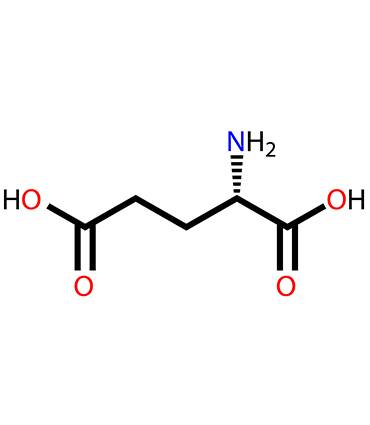Glutamic acid

Abbreviations:
Glutamate / Glu / E
Description
Glutamic acid, also known as glutamate, is a hydrophilic amino acid that is negatively charged due to the presence of a carboxylic acid group at the end of its side chain. Glutamic acid is a dicarboxylic amino acid qualified as a diacid because it has two carboxylic acid groups and an amino group.
As the human body is capable of synthesising it, this amino acid is described as "non-essential".
Like all amino acids, glutamate is used in the composition of proteins.
Within the central nervous system (CNS), it acts as an excitatory neurotransmitter. It is also a precursor of GABA (γ-aminobutyric acid), which is the main inhibitory neurotransmitter in the CNS.
The benefits
- Glutamic acid is an amino acid that helps maintain the integrity of the intestinal barrier.
- It can be used in combination with a probiotic and a prebiotic (a fibre-rich food that promotes the proliferation of microbiotic strains).
- In this case, the glutamic acid is incorporated into the proteins during their synthesis by the "good" bacteria of the intestinal microbiota, thus favouring their developments. These bacterias are particularly useful in cases of intestinal hypersensitivity.
- To find out more about GABA, click here.
Our products based on Glutamic acid
-
€52.80
-
As low as €39.90In stock













Recommandé par mon médecin, je l'utilise régulièrement, avec de tvoir plus
Avis du 28/09/2024, suite à une expérience du 11/09/2024 par Silvia S